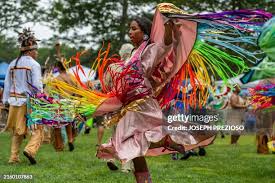The Significance of Native American Culture in Today’s Society

Introduction
Native American culture is an integral part of the historical and social fabric of the United States. With over 570 federally recognized tribes, each with its own unique traditions, languages, and histories, understanding Native American culture is essential in fostering respect and inclusivity in our diverse society. As discussions surrounding cultural recognition and rights continue to grow globally, insights into Native American history and contemporary issues remain relevant and important.
Historical Overview
Native American tribes have inhabited North America for thousands of years, long before European settlers arrived. They developed rich and varied cultural traditions, including art, storytelling, music, and spirituality. The arrival of Europeans marked a significant upheaval, resulting in the displacement of many tribes and the loss of ancestral lands. Despite these challenges, Native American communities have persevered and continue to celebrate their rich heritage.
Current Events and Advocacy
In recent years, there has been a renewed focus on Native American rights, sovereignty, and environmental advocacy. Significant events include the Standing Rock protests against the Dakota Access Pipeline, where Native American activists stood up for their land and water rights. These movements have brought greater awareness of Indigenous issues not only within the United States but globally as well. Moreover, educational initiatives aimed at incorporating Native American history and perspectives into school curriculums have gained momentum, helping to rectify historical inaccuracies and promote understanding.
Cultural Impact and Significance
The contributions of Native Americans to American culture are vast and essential, influencing various aspects such as language, cuisine, and art. However, representation in media remains a challenge, as many portrayals often rely on stereotypes and misconceptions. Initiatives led by Native filmmakers, writers, and artists are vital in shaping a more accurate and respectful representation of Native American identities in contemporary culture.
Conclusion
As society progresses towards greater acceptance and understanding of cultural diversity, recognizing and valuing Native American heritage is crucial. The resilience of Native American communities stands as a testament to their enduring legacy and offers lessons in sustainability, community, and respect for nature. Moving forward, fostering partnerships between Native and non-Native communities can lead to meaningful dialogue and reconciliation, ensuring that Native American voices continue to be heard and celebrated.
You may also like

Current Trends in Crime: An Overview

Discovering the Beauty and Culture of Norway

Exploring the Unique Heritage and Current Affairs of Eswatini
SEARCH
LAST NEWS
- Remembering Wendy Richard: The Promise to Co-Star Natalie Cassidy
- How Did Anglian Water Achieve an ‘Essentials’ Rating for Mental Health Accessibility?
- Shai Hope Leads West Indies in T20 World Cup Clash Against South Africa
- What We Know About Weston McKennie: Future at Juventus and Past at Leeds
- What We Know About the Upcoming Live Nation Antitrust Trial